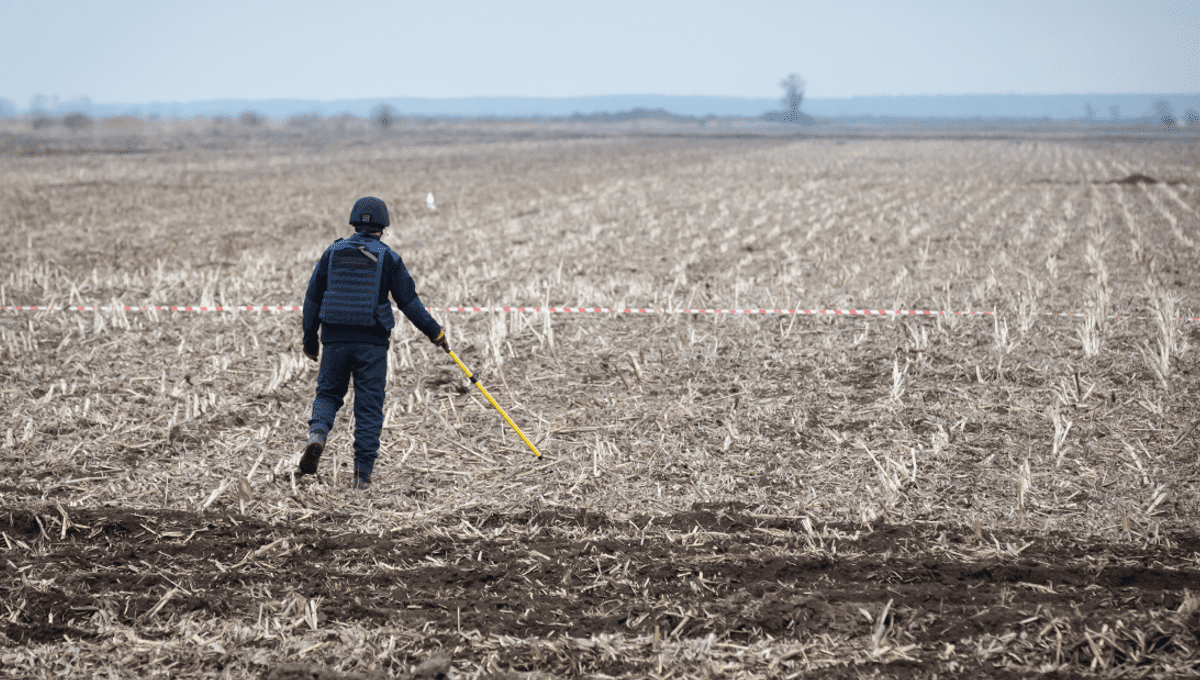
Russian attacks on Ukraine could leave scars in the ground that remain detectable for millions of years as part of the fossil record. “Bombturbation,” as the process is known, describes how military explosives can contaminate soil with dangerous materials and chemicals and has already been demonstrated by heavy metals left behind by artillery used in World War I.
“Bombturbation, a term coined by Joseph Hupy [2011], is a form of soil disruption caused using explosive munitions, ranging from grenades to heavy artillery,” write the authors of a new study published in the European Journal of Soil Science. “Following this, the physical structure of the soil may be severely disrupted or completely destroyed.”
Bombturbation was put forward in a 2006 paper from Hupy and Randall Schaetzl that describes how it has the potential to completely destroy soil horizons, rendering the components contained in a crater to be completely altered from nearby samples. It can also alter the bedrock changing how it fractures and weathers in response to eruptions and the introductions of chemicals and elements.
In the new research, the authors looked at a small, wooded area in the Pas-de-Calais region in France, an area that saw a modest amount of action compared to other WWI battlefields studied. Despite this, the researchers found evidence of craters in which soil development was changed and the concentration of lead and copper was above average.
While the degree of heavy metal contamination at time of study was below the legal limit for copper, it was higher in some samples for lead and the study authors believe that it likely represented a threat to human health in the past. This kind of contamination can be even more pronounced in sites with heavy artillery fire, and becomes all the more significant in areas like Ukraine, which in peace times contributes enormously to the world’s grain supply.
As such, it’s the authors’ recommendation that such contamination “be taken into account when considering a change in land use,” such as a once-heavily-bombed battlefield into a place for agriculture. Something that, as explored by geologist David Bressan for Forbes, could be particularly relevant to Ukraine’s future.
Russia’s invasion of Ukraine has so far seen a range of devastating artillery come into action (including vacuum bombs and flechettes), as well as disruption at its nuclear power plants, including Chornobyl, which has reported higher levels of radiation as a result.
While bombturbation may see the heavy metals and chemicals used in artillery infuse into the soil in a way that could contaminate future crops, radioactive activity can also leave behind a lasting mark. A recent study argued that 1954 was the start of the Anthropocene, a geological epoch where Homo sapiens started having a significant impact on the planet’s ecosystems, as indicated by plutonium deposits in the sediment from atomic weapon testing.
It seems, then, that the continuing attacks from Russia could have lasting effects on Ukraine in perhaps unexpected and enduring ways, as the impacts of war throw into question the region’s capacity to return to its agricultural past.
[H/T: Forbes]
Source Link: "Bombturbation" Could See The War In Ukraine Become Part Of The Fossil Record